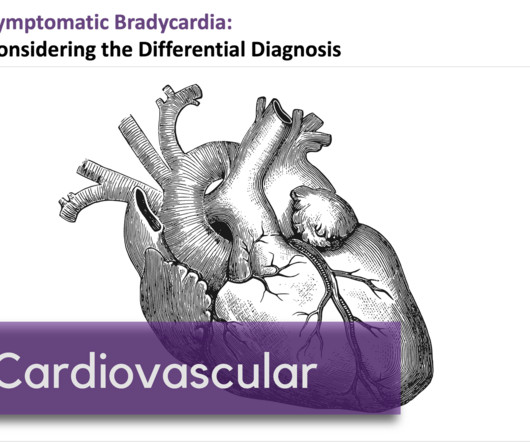Symptomatic Bradycardia: Considering the Differential Diagnosis
Northwestern EM Blog
JUNE 16, 2024
Myocardial Infarction Medication Sinus node dysfunction Infectious Disease Hypothermia Metabolic Abnormalities (hypothyroidism, hyperkalemia, ect.) Hypothermia Moderate to severe hypothermia can cause significant bradycardia leading to hypotension. Hypothermia. Treatment includes permanent pacemaker placement [9].













Let's personalize your content